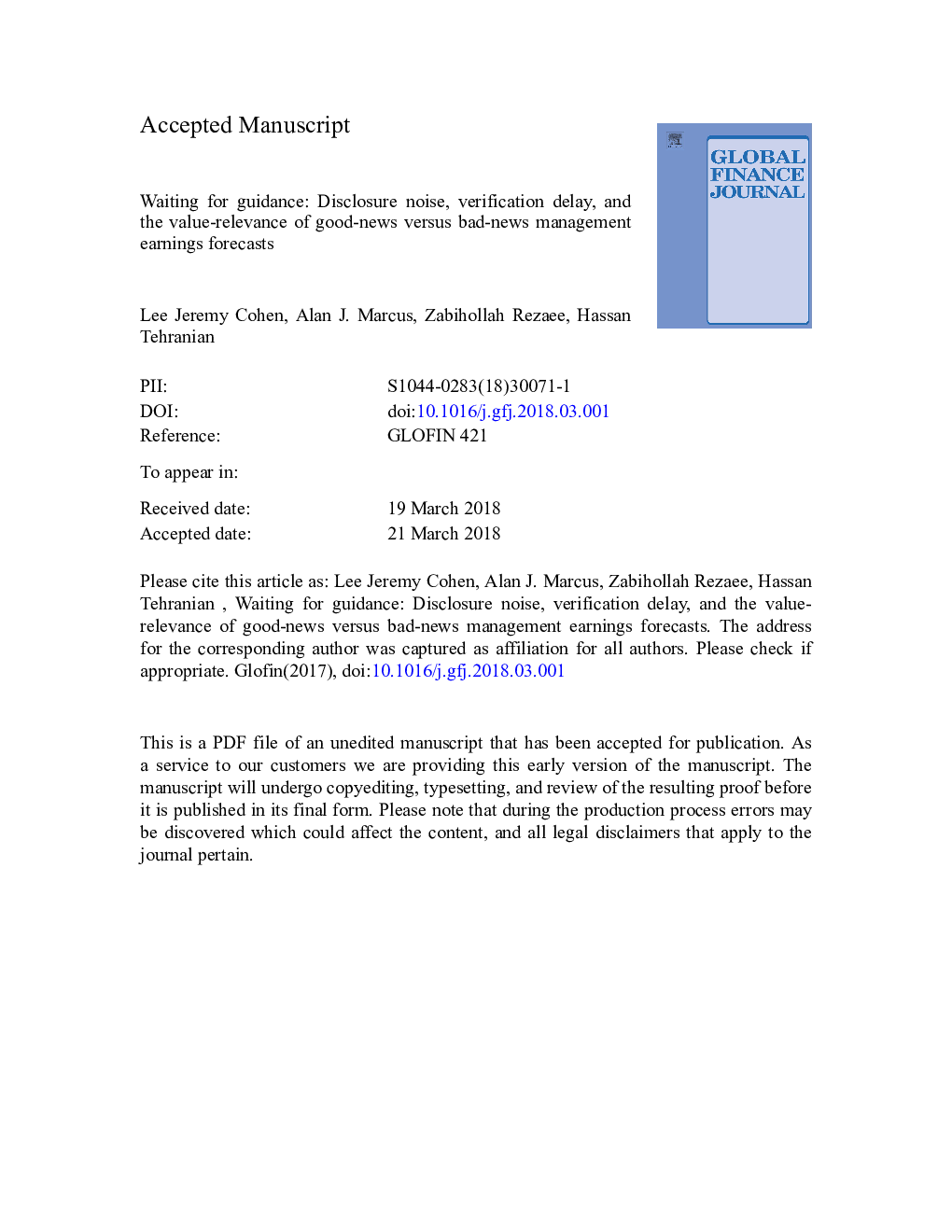| Article ID | Journal | Published Year | Pages | File Type |
|---|---|---|---|---|
| 7354070 | Global Finance Journal | 2018 | 50 Pages |
Abstract
The market views bad-news management earnings forecasts as more credible than good-news forecasts not because good-news forecasts are biased, but rather because they are noisier than bad-news forecasts. After controlling for noise, the difference in market response disappears. Bad-news forecasts have unconditionally lower dispersion around final earnings and, unlike good-news forecasts, bad-news forecasts become more accurate and contain higher magnitude updates as earnings announcement dates approach. The results provide new direct evidence that management differentially seeks to verify bad news, and withholds greater amounts of bad news while it seeks verification. Consistent with rational markets, this mitigation of noise provides a novel explanation for the asymmetric market response to management earnings forecasts.
Related Topics
Social Sciences and Humanities
Business, Management and Accounting
Business and International Management
Authors
Lee Jeremy Cohen, Alan J. Marcus, Zabihollah Rezaee, Hassan Tehranian,
